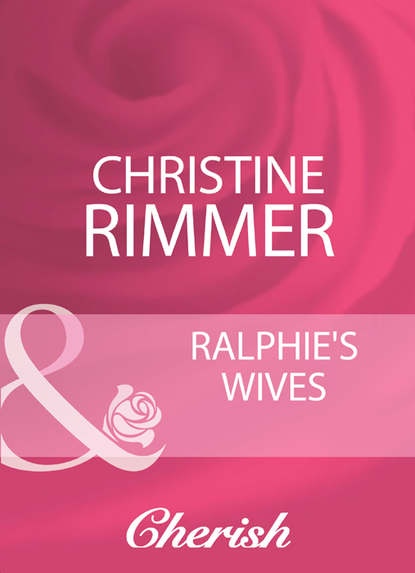По всем вопросам обращайтесь на: info@litportal.ru
(©) 2003-2025.
✖
Ralphie's Wives
Автор
Год написания книги
2018
Настройки чтения
Размер шрифта
Высота строк
Поля
He sat back a fraction. “About?”
“About this bar. That you were getting his half of it when—” she had to swallow before she could finish “—Ralphie was gone?”
Her eyes pleaded with him. She didn’t really want the truth. He gave it to her anyway. “I knew.”
She had to clear her throat again. “Ralphie told you he was leaving his half to you?”
“Yeah.”
“How long ago was that?”
“Three years.”
She shut those misty eyes and sucked in a deep breath through her nose. He watched the roses on her dress rise high and recede.
Same old Ralphie, Rio thought. Ralphie had a bad habit of promising people things that didn’t belong to him. And if something did belong to him, he’d promise it to everyone.
When Ralphie’s ex looked at him again, her pretty mouth was set in an angry line and she seemed to have run out of questions—for the moment, anyway.
Rio decided to try getting a few answers of his own. “That was the widow, right? The little pregnant one who left with…” He didn’t know the guy’s name, so he gave her a chance to provide it.
She did. “Boone is Darla Jo’s brother. He works here, for me.”
“And Darla is exactly how pregnant?”
The woman across the bar made a small, angry sound and her green eyes flashed warnings. “Darla Jo was pregnant before she and Ralphie got married, if that’s what you’re getting at. Does that shock you or something?”
“Not a lot shocks me.”
“Is that a fact?”
“Yeah. It’s a fact.”
“So why even ask?”
“Just curious. Just…putting a few things together.”
“Well, you know what? I’m a little curious myself. I can’t help wonderin’ why you didn’t have the courtesy to introduce yourself when you first walked in here.” She tipped her head at the twenty he’d laid on the bar. “Why’d you have to fake me out with the paying customer routine?”
“Sorry,” he said, though he wasn’t. “I wanted to wait. Talk to you alone.”
“How thoughtful.” She gave the word a whole new meaning. Not a good one.
He couldn’t resist turning the knife a little. “And then there were all the interesting things your friends had to say about the way Ralphie died.”
She made another of those tight, disgusted noises. “Listening to other people’s conversations. Didn’t your mama ever tell you that eavesdroppin’ is rude?”
“Gets ingrained, in my line of work.”
She waved her hand as if batting away a pesky fly. “Well, it’s all just talk, anyway, what Rose said.”
He gave her the lifted eyebrow. “You have to admit she made some valid points.”
For that he got a long, tired sigh. “Listen. It’s been three weeks since it happened and the police don’t have a thing—and don’t give me that look. They did their job. They interviewed everyone in sight. And whenever I called them and asked what was going on, they were great about it, real considerate and helpful. But they’ve got nothing, not without the car that ran him down or a single witness or anything left where it happened that might give them a clue. A hit-and-run. That’s all we know. And like Tiff said, that’s probably all it was. An accident.”
“Phoebe.” He called her by her name for the first time and found he liked the feel of it in his mouth. “Do you think there’s more to it?”
She simmered where she stood. “It doesn’t matter what I think. It’s pretty damn clear by now that we’re never going to know for sure.”
“You mean you don’t want to know? Or maybe you just don’t care…”
She gave him a long beat of frozen silence. Then, with slow purpose, she leaned in close. He smelled that faint perfume again. And liked it. Too much. She spoke low, her voice gone to velvet—velvet over tempered steel. “You can be a real asshole. You know that, Mr. Private Detective?”
“Do you want to know the truth or not?”
“You also ask too many questions.”
“Questions tend to bring answers. I like answers.”
A stare-down ensued. He won. Más o menos.
She broke the eye contact. Shoving off the bar, she stomped on down to where her friends had sat and started cleaning up after them.
Every movement deft and quick, she cleared off the soggy cocktail napkins and the squeezed-out sections of lime. She dumped the half-empty drinks, tossing them into the steel sink behind the bar. Once the debris was swept away, she grabbed a wet towel to swab it all down, the sleek muscles in her bare arms flexing as she scrubbed.
As he watched her, Rio considered her various reactions since he’d walked through the door. What did they add up to? Grief? Guilt? Fury at Ralphie’s final betrayal of leaving half of her business to a guy she’d never met? Frustration at not even knowing who had run Ralphie down?
When she’d said goodbye to the childlike, big-bellied widow, he’d heard a definite softness in her voice. Motherly almost. Protective. What was that about?
Rio consulted his instincts. They told him that Phoebe Jacks was okay, that if Ralphie had been murdered, she wouldn’t have—couldn’t have—had anything to do with it. But instincts could lie. And his were probably a little skewed in her case.
Scratch that.
More than probably.
He liked her—as Ralphie had always been so damn sure he would. He liked her coffee-brown hair, piled loosely on her head, getting free in little wispy strands that curled around her cheeks. He liked her pearly skin, her slanted green eyes and straight, no-nonsense black eyebrows. And then there was the way she’d refused to cry in front of him. And that sexy little black dress splashed with red roses that tied behind her neck and left her upper back and shoulders bare.
He’d like to see the parts of her the roses covered. He’d like that a lot.
Even if she did have a scrotum-shrinking way about her when she was ticked off.
Once she got the bar cleared, she trotted out to the table in the back where the loudly grieving widow had sat with her brother. She scooped up the glass the widow had left and wiped away the water ring beneath it. She straightened the chairs, holding the ladderbacks with one hand, kicking them under the table so the chair legs screeched against the floor.
She flew back behind the bar and dumped the glass, folded the wet towel into a neat little square. Rio waited for her to look at him again.
Before she did, the door to the street swung open and three guys in short-sleeved dress shirts, red ties and cheap slacks came in. Obviously regulars. Phoebe greeted them by name, pushed an ashtray toward the balding one in the center, and served them without having to ask what they’d have.
The balding one lit a cigarette and told her she was looking good. She flashed him a smile of acknowledgment—with zero invitation in it.











